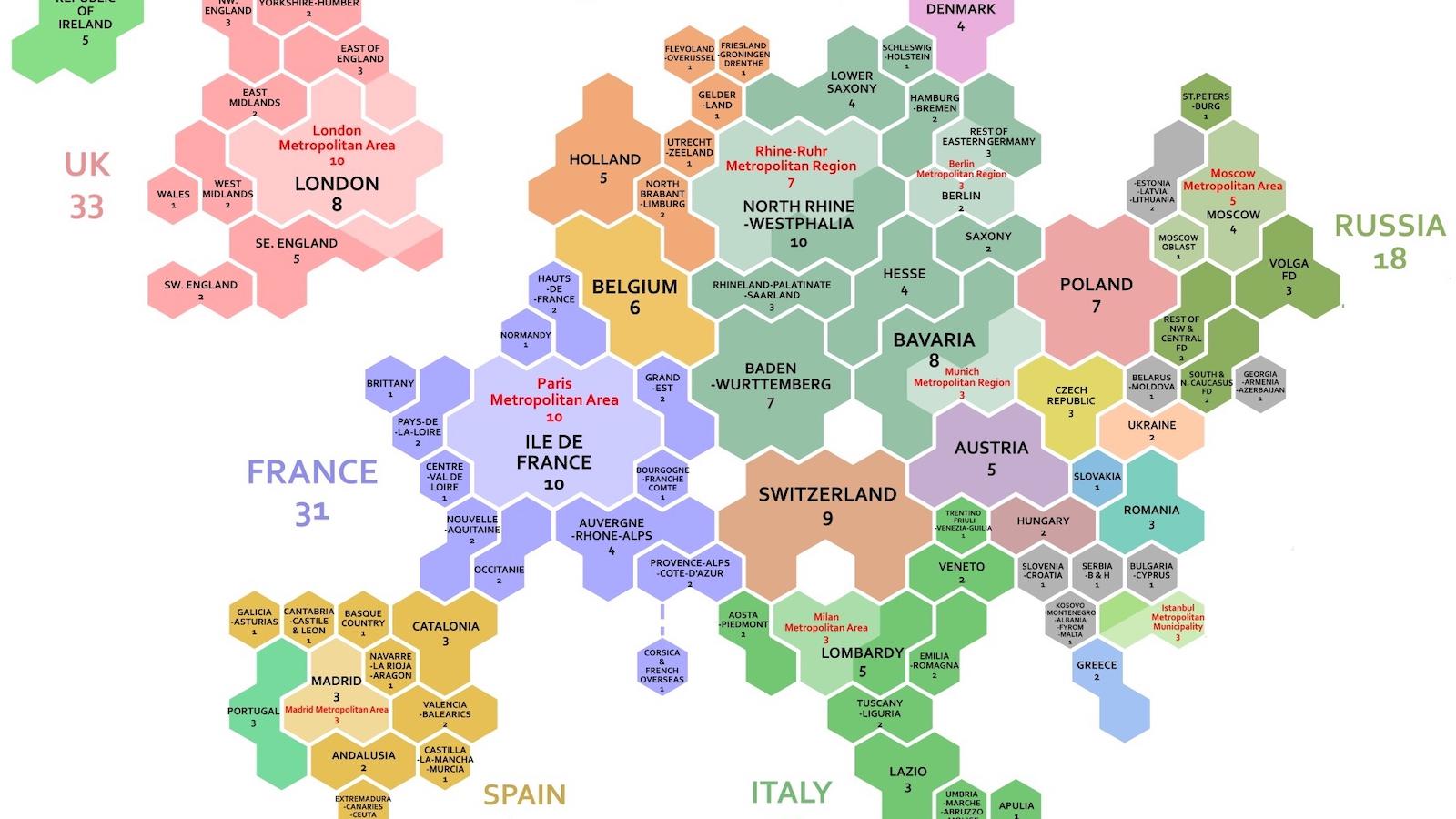Rare earth war: can the U.S. even compete with China?

Credit: Freeman Zhou via Unsplash
- Rare earth elements are metals used for creating consumer electronics, rechargeable batteries, renewable energy, and military-grade weapons.
- Having lost its hegemony to China, the U.S. is looking at ways to restart mining operations.
- America’s only rare earth mine, Mountain Pass, has been selling all its output to China.
Even though rare earth elements helped shape modern society into what it is today, most of us hardly know a thing about these unique metals — aside from the fact that they are irreplaceable in the production of many 21st century inventions, from the touch screens in our iPhones to the batteries of our Teslas and to the engines of our military’s latest fighter jets.
One of the first things to know about rare earths is that their name is a bit of a misnomer. While their importance to consumer electronics, renewable energy, and national defense makes these materials very costly, rare earths are actually pretty abundant in Earth’s crust. The problem is that, much like oil or gas, these metals only can be found in select locations around the world, hidden away inside mineral deposits that did not form with country borders in mind.
Rare earth metals: a geopolitical weapon
As a direct result of this irregular distribution, trade in rare earth elements is often dictated by unexpected developments in international relations rather than the ups and downs of the global economy. For most of the previous century, the United States was the world’s largest supplier of rare earths, sourcing its metals from India, Brazil, and — from the 1950s onward — South Africa’s monazite-rich Steenkampskraal mine.
But in the 1990s, American suppliers began lagging behind a different player that has ruled the rare earths business ever since: the People’s Republic of China. With a third of the planet’s total supply at his disposal, Deng Xiaoping set out to expand rare earth mining operations the moment he realized how indispensable they would become to future machinery. “The Middle East has oil,” the chairman said in 1992. “China has rare earths.”
Soon enough, the Communist Party started offering substantial rebates on export taxes. This, its leaders believed, would motivate both independent and state-run enterprises to start mining rare earths. They were right; a few decades later, China now controls more than 85 percent of the market. Not only has the country managed to outpace its competitors in terms of sheer output, but it also dominates every other aspect of the industry’s supply chain.
This dominance proved a powerful asset, one China used many times during diplomatic disputes. In 2010, the country ended its rare earth exports to Japan to prod government officials in Tokyo to stop interrogating a detained Chinese fishing captain. Last year, Chinese officials said that they would impose sanctions on Boeing, Lockheed Martin, Raytheon, and other U.S. defense contractors after the American government sold weapons to Taiwan.
Can America restore its rare earth metal industry?
Each time China threatens to withhold or cut back on exports, worldwide panics cause the prices of rare earth metals to skyrocket. Uncomfortable with the idea that their country must rely on an increasingly unpredictable foreign power for something as essential as rare earths, policymakers and political commentators are demanding Congress make an effort not to just protect but rebuild America’s rare earth mining infrastructure.
These are ambitious, perhaps even irrational demands. Currently, the U.S. has but one operating rare earth mine: Mountain Pass. Built above a 1.4-billion-year-old carbonatite deposit in southern California, the mine was closed down in 2002 due to environmental concerns. In 2017, MP Materials purchased Mountain Pass and restarted production.
The mine’s reopening was the first step in getting America’s rare earths industry back on track. In 2020, President Donald Trump signed an executive order calling for an end to U.S. dependence on Chinese suppliers. The thought was that an increase in domestic production would end negotiations with countries which “do not endorse appropriate minerals supply chain standards, leading to human rights violations, forced and child labor, violent conflict, and health and environmental damage.”
In spite of its lingual posturing, the executive order may have done the exact opposite of what it wanted to achieve. While the federal government provided Mountain Pass’ primary shareholder MP Materials with over $9 million in funding, an entity partially owned by the Chinese government named Shenghe Resources possesses an 8 percent shareholder stake in the company.
According to a report from Quartz, Shenghe was part of the same business coalition that saved Mountain Pass from bankruptcy. More importantly, however, the listing prospectus which MP Materials filed last October states that Shenghe serves as the mine’s only buyer and sole source of income. In an email to Big Think, the company says that this is because the U.S. does not have refining capacity, but it is constructing a refining facility that is scheduled to open in 2022. In the meantime, Shenghe’s 2020 earnings forecast says that their stake in MP has led to a 200 percent increase in net profits.
It seems China’s mining corporations are weaving their way into the rare earth industries of other countries as well. At the start of 2021, for instance, Shenghe made an agreement with Australian mining company RareX to set up a joint venture mining operation in the western regions of the Outback. On the other side of the globe, Shenghe managed to acquire minority stakes in a mining operation that will take place in Greenland.
In late August, the Chinese government made headlines yet again when its foreign ministry said Beijing would be open to “friendly cooperation” with Afghanistan’s new Taliban regime which — according to rare earth experts — is sitting on one trillion dollars’ worth of unmined minerals. The announcement should not come as much of a surprise, though, considering Chinese Foreign Minister Wang Yi met with Taliban co-founder Mullah Abdul Ghani Baradar in July.
Having recently lost a potential trading partner to their largest competitor (i.e., Afghanistan), U.S. lawmakers shifted focus onto increasing the nation’s output. In the midst of the coronavirus pandemic, California Congressman Eric Swalwell (D) formed the Congressional Critical Minerals Caucus, a bipartisan attempt to “help the United States develop the technical expertise and production capabilities to assure a long-term, secure, and sustainable supply of energy critical elements.”
A few weeks ago, this caucus introduced the “Rare Earth Magnet Manufacturing Production Tax Credit Act” that would incentivize the production of rare earth magnets used in electric vehicles and clean energy generators. USA Rare Earth, an investment company financing domestic mining operations, welcomed the legislation, with CEO Pini Althaus claiming it could enable domestic producers to mine as much as 17 percent of the American economy’s demand for permanent magnets.
Founded less than two years ago, USA Rare Earth has already established itself as somewhat of a trailblazer when it comes to restoring America’s rare earth industry. The company owns 80 percent of a joint venture mining operation set to take place in Hudspeth County, Texas. Acting on the Biden administration’s aspirations to get half of Americans driving electric vehicles by 2030, USA Rare Earth devised a 20-year mining plan that could make this benchmark feasible.
Wolf warrior diplomacy
If the U.S. can restore its domestic supply of rare earths still remains to be seen. For now, the only thing that is certain is that the country no longer wants to rely on its historic trading partners. Said Noam Chomsky of the present situation: “If China gains a near-monopoly over rare earths, they will be in a powerful position to influence choices and policies of other states. From China’s point of view, it certainly makes sense to gain as much control as they can.”
Editor’s Note: The original version of this article contained a few inaccuracies in regard to the Mountain Pass mine and its acquisition by MP Materials. These errors have been corrected. Our apologies.





